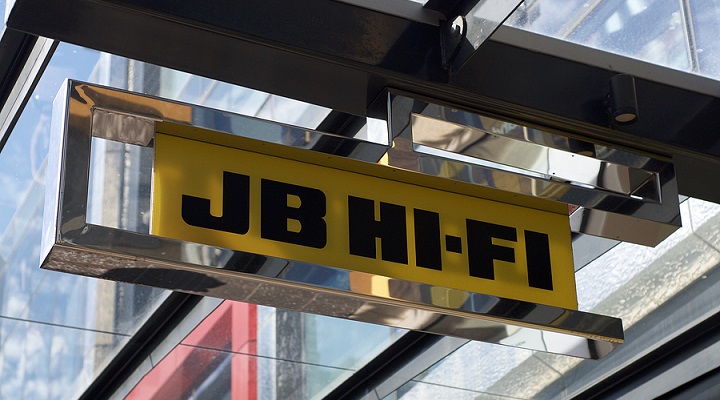Following the release of its report on sexual harassment and gender discrimination at JB Hi-Fi on Friday, the Retail and Fast Food Workers Union (RAFFWU) has urged the electronics retailer to take “immediate” and “radical” action to make its workplace safer and more equal for women. The union sent an email to JB Hi-Fi CEO Richard Murray on Friday afternoon, calling for an acknowledgement of the issues outlined in the report, the creation of a $100 million fund to compensate all employees
ees who have experienced sexual harassment or gender discrimination and an increase in wages for non-commission-based store staff to ensure they’re paid at least the average of a sales role position. So far, it has received no response.
“We remain hopeful they’ll act and take these issues far more seriously than they have in the past,” Josh Cullinan, RAFFWU secretary, told Inside Retail.
Inside Retail contacted JB Hi-Fi for comment, but it was unable to provide a statement in time for publication.
Staring, leering and unwelcome advances
The report is based on the results of an online survey that was created by a group of female RAFFWU members who work at JB Hi-Fi and claim they have experienced sexual harassment and gender discrimination.
Around 200 male and female JB Hi-Fi staff completed the survey voluntarily over a four-month period in the second half of 2020. They do not represent a random sample of all JB Hi-Fi employees, but nevertheless, the findings are disturbing.
Eighty-three per cent of respondents claimed they have personally experienced or witnessed talk of hiring women based on their looks or appearance, comments about the bodies of women staff or customers, or use of words such as “bitchy” or “bossy” to refer to women staff.
Eighty-one per cent of respondents claimed they have seen management engage in some form of gender-based harassment, such as accommodating customers who ask to “speak to a man” about a product instead of a woman, or failing to address workplace sexism by high-performing sales staff.
And a significant percentage claim they have experienced staring or leering, suggestive comments or jokes, unwelcome invitations to go on a date, or requests for sex, among other forms of sexual harassment or assault in the JB Hi-Fi workplace.
In previous reporting on this issue, JB Hi-Fi said it encourages staff to use the Stopline Whistleblower Hotline, which allows “any employee, supplier or customer to anonymously report suspected or actual wrongdoing”.
The company reportedly instituted new policies around reporting discriminatory or offensive behaviour and harassment internally after the survey was launched last year. However, Cullinan said more action is required.
“That was an initial step, and it was welcomed from RAFFWU, but it goes nowhere near far enough to deal with the endemic issues which were documented in the report,” he said, adding: “That kind of policy continues to place all the responsibility on the victims of the harassment and discrimination. And that’s just not appropriate.”
Barriers to promotion, equal pay
Another issue raised in the survey results is the alleged unequal treatment of men and women in the workplace, with a majority of female survey respondents claiming they are expected to do more operational tasks and other odd jobs than men and to undertake management duties without being paid management rates.
Cullinan said the underrepresentation of women in better-compensated commission-based sales roles is one of his biggest concerns. According to him, women make up roughly 40 per cent of JB Hi-Fi’s staff, but not an equal proportion of commission-based sales staff.
“JB Hi-Fi appeared to recognise this [issue] in previous years and, in their annual reports, were recording purported improvements in the appointment of women into commission-based sales roles,” he said.
According to Cullinan, however, JB Hi-Fi failed to report its progress on this metric in FY20.
“Members in those roles can earn $100 or more per week, so … when they’re overwhelmingly filled by men, we do recognise that as a massive equal pay issue and a form of gender discrimination in the workplace,” he said.
Inside Retail has attempted to confirm the proportion of women in commission-based sales roles with JB Hi-Fi.
Change starts at the top
In the report, RAFFWU described the culture of gender discrimination and sexual harassment at JB Hi-Fi as “endemic”. For change to occur, according to Cullinan, “it needs to start at the top”.
“It starts with accepting that there have been women sexually harassed and sexually assaulted in the workplace and recognising that it’s appropriate to compensate them,” he said.
“Accepting that the system of work and commission-based structure is discriminatory is a step that just needs to be [done] and action taken to stop it.”
Jude Kingston, the founder of Mind Your Fashion, an organisation raising awareness about mental illness in the fashion and creative industries, believes leaders can send a clear message that abusive behaviour will not be tolerated, but they must genuinely believe it’s unacceptable.
“I’m not entirely convinced that they all do, as there are leaders in positions that have and do behave in the same manner, therefore it’s challenging for them to follow through with appropriate actions when they don’t see it as a problem,” she told Inside Retail.
According to Kingston, leaders need to have zero tolerance for abusive behaviour and reinforce the messaging and code of conduct on a regular basis in the business.
“If there is even a whisper of abusive behaviour, it needs to be addressed and appropriate action taken immediately. This does not mean moving the offender into another role, location or promoting them. It means permanently removing them from the business.”
Ongoing training and education is required, she said, and policies that allow victims to safely report abuse must be put in place and followed. Allegations need to be taken seriously and acted on immediately.







